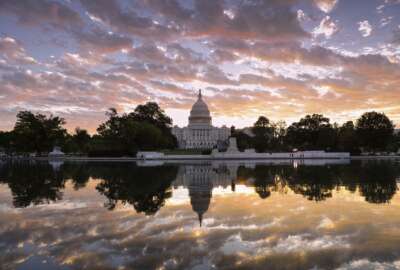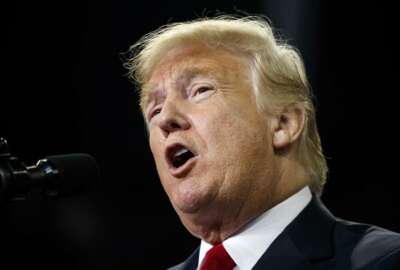
Federal pay for 2019 in limbo, as congressional negotiations stall
Negotiations over a proposed 1.9 percent pay raise for civilian federal employees have stalled in Congress, even as many agencies secure full-year appropriations...
Federal employees hoping for a quick answer on the status of their pay for 2019 will have to wait, at least another month or two longer.
Negotiations among the House and Senate conferees chosen to resolve their differences on a third minibus, the Interior, Financial Services, Agriculture, Transportation and Housing and Urban Development bill, have stalled.
The Senate had included and passed a 1.9 percent pay raise for civilian employees in 2019 in its version of the financial services and general government appropriations bill. The House, however, has remained silent on the topic, meaning House and Senate members need to resolve their differences before unveiling their decision in a minibus conference report.
It’s unclear what exactly is holding up the conferees. But a House Democratic aide told Federal News Radio that the Senate’s proposed federal pay raise was one of the issues behind the delay.
Disagreement over a House-proposed deficit reduction fund may be another policy rider stalling an agreement.
Regardless of the reason for delay, House lawmakers canceled the next two weeks of previously-scheduled legislative time and will instead return to their districts until Nov. 13.
Even with the new House legislative schedule, it’s possible lawmakers won’t have an update on the status of federal pay until after the current continuing resolution for some agencies runs out on Dec. 7, the House Democratic aide said.
The National Active and Retired Federal Employees (NARFE) Association expressed some concern over the prospect of a 2019 pay raise earlier this week after praising new federal health insurance premium rates for the next year.
“Unfortunately, it appears House and Senate negotiations have stalled on the appropriations bill that, if passed, would provide a 1.9 percent average pay increase, and the decision on federal pay likely will be delayed until after the election,” NARFE President Richard Thissen said in a statement earlier this week. “We urge supportive members of Congress to continue to push for a federal pay raise to cover even this very modest premium increase.”
At least 180 House Democrats and Republicans have voiced their support for a pay raise in 2019, despite President Donald Trump’s proposed plan to freeze civilian pay next year.
Meanwhile, about three-quarters of federal agencies now have full-year appropriations as of Oct. 1, after Trump on Friday signed a second minibus of spending bills into law. The spending package included appropriations for the Defense, Education, Health and Human Services and Labor departments.
With Friday’s signing, it’s the most spending bills that Congress has enacted before the fiscal-year deadline since 1997, according to Senate Republicans.
“The signing of this legislation marks a drastic turnaround in the way we have funded the government in recent years,” Senate Appropriations Committee Chairman Richard Shelby (R-Ala.) said Friday in a statement.
The minibus also includes a continuing resolution through Dec. 7 for the agencies that haven’t yet had appropriations bills cross the president’s desk. The Agriculture, HUD, Interior and Treasury departments, along with the Office of Personnel Management and General Services Administration, will continue to operate under 2018 funding levels.
Lawmakers are also still debating over spending priorities for the Homeland Security Department.
Copyright © 2025 Federal News Network. All rights reserved. This website is not intended for users located within the European Economic Area.
Nicole Ogrysko is a reporter for Federal News Network focusing on the federal workforce and federal pay and benefits.
Follow @nogryskoWFED





